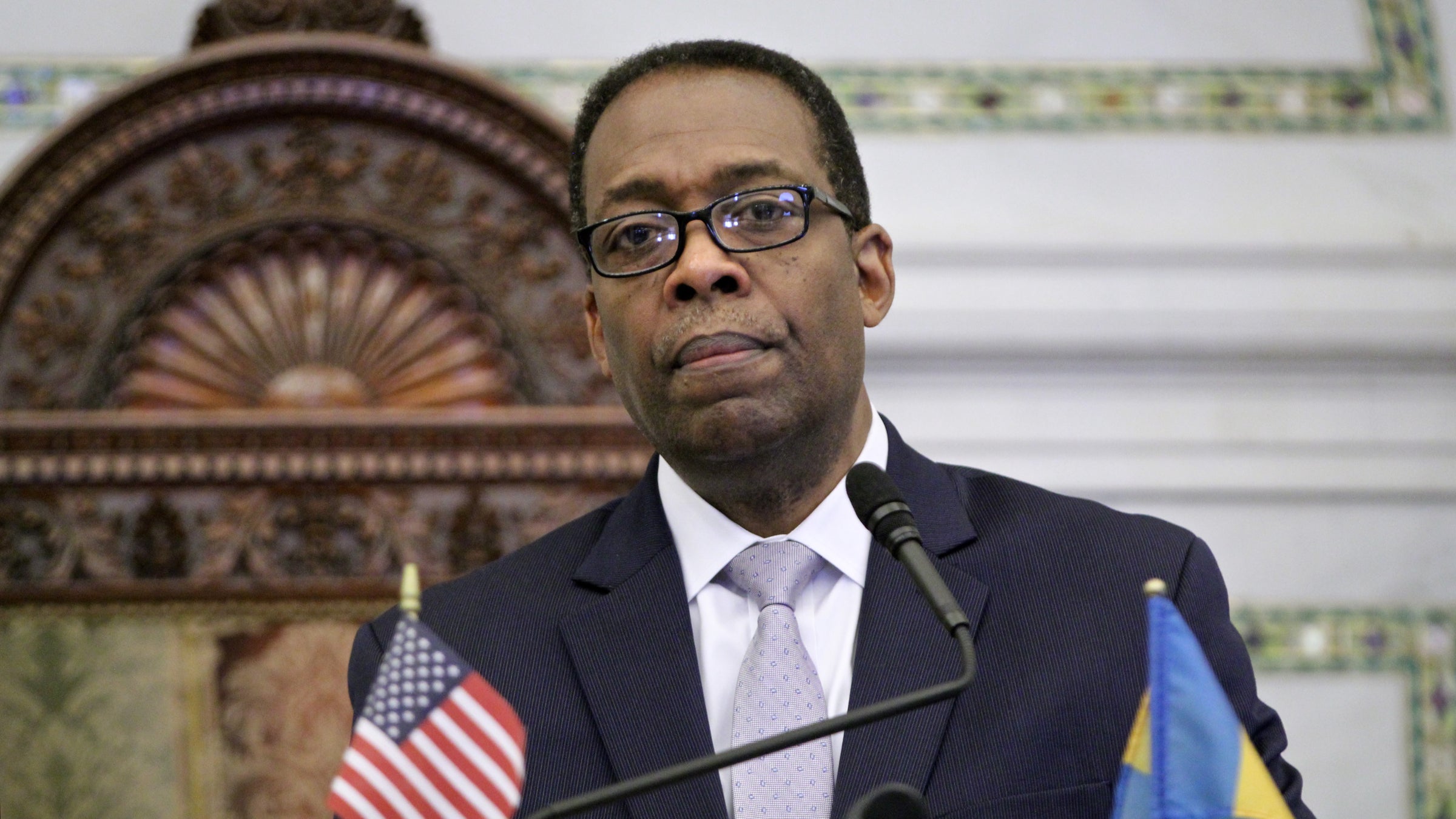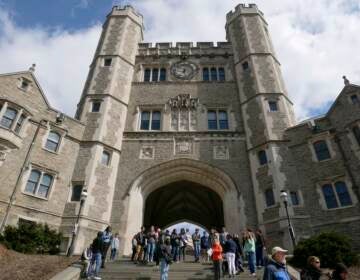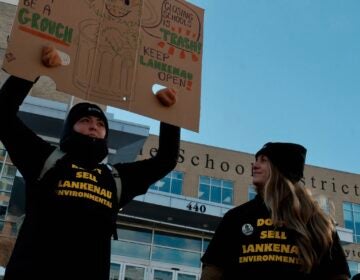City’s financial commitment to Philly schools only half-hearted, district says
Listen
City Council President Darrell Clarke uses a graph to show how declines in state and federal funding have resulted in an increased burden on local revenue. (Emma Lee/WHYY)
Philadelphia’s City Council gave initial approval to a slate of tax increases and asset sales to support the cash-strapped city school district Wednesday.
But just how much of the proceeds can be counted on by the Philadelphia School District is a point of contention. Council says $100 million. District officials say $45 million.
So what accounts for the difference?
Let’s start at the beginning.
In the face of growing fixed costs, the district needs an additional $85 million to maintain existing services for next school year – services that Superintendent William Hite says are woefully inadequate.
In order to provide each student a high quality education, Hite has asked for $300 million between the city and the state.
Coming up on its last meeting of the fiscal year, City Council met Wednesday to hash out its intentions to help city schools.
No final bills were voted upon Wednesday, but members favorably recommended three measures that would raise new revenue:
a 4.5 percent increase in property taxes to raise $50 million;
a 7.1 percent increase in the city use and occupancy tax to raise $10 million;
and an increase in the parking tax to 22.5 percent to raise $10 million.
In total, Council says these measures would rake in $70 million for schools. District officials had hoped the city would find a way to deliver $103 million.
Mayor Michael Nutter has been seeking a 9.3 percent property tax increase, which he estimates would generate $105 million for the district.
Saying that would put too much of a burden on residents, Council members decided to cut Nutter’s proposed rate hike in half and come up with other means of raising funds.
“We don’t think it’s fair to only go back to the taxpayers as it relates to real estate, so we tried to have a balanced approach to it,” said Council President Darrell Clarke.
Bottom line, though, if you own property in the city, it became clear Wednesday that bills will rise.
But here’s where it starts to get tricky. From the district’s point of view, there’s another wrinkle here.
The property tax hike will generate $50 million, but only half of that automatically goes to the schools.
Council controls the other half. And while Council leaders say the city will give those funds to the district, there may be strings attached.
Essentially, based on Wednesday’s action, Council really only devoted $45 million to schools, and it can now withhold the other $25 million until conditions are met to its liking.
Former Gov. Tom Corbett took a similar tack in 2013 when he withheld $45 million that drastically reduced the number of school counselors available for the first six weeks of classes.
Will the district have to make further cuts next year?
Hite is counting only the money that has been absolutely guaranteed to the district. Assuming no other aid is forthcoming, that level of funding would mean more cuts.
Clarke counts the whole $70 million, plus an additional $30 million he’s betting on from the sale of commercial property tax liens.
But both the district and the Nutter administration say it’s not smart to bank on lien sales. The city hasn’t done them since Ed Rendell’s term as mayor, and officials say projections at this point are very shaky.
Clarke says that, counting the sale of those liens, Council authorized $100 million for schools Wednesday.
“I’m not going to be drawn into a tit-for-tat with Dr. Hite,” said Clarke. “We again have stepped to the plate, unlike any other stakeholder in this, and provided revenue for the school district. We are now exceeding the $400 million mark over the last four years.”
Another complicating factor of the potential lien sales: The district is already counting on $65 million in delinquent city tax collection in its budget. The sale of liens to a third-party may undercut that assumed collection rate.
The sale of liens would also only happen one time. Clarke’s office, though, says Council would find a way to replace those funds each year based on maintenance of effort requirements.
Layoffs looming?
Hite insists only $45 million in additional revenue is guaranteed, meaning his team must begin to plan for more downsizing.
“There’s nothing left to cut because of all the things we’ve done to date,” he said. “The only vehicle that we would have, hypothetically, if we would do this, is a class-size increase. And a class-size increase means layoffs.”
The school district is also waiting for Harrisburg to resolve its budget dispute.
Gov. Tom Wolf’s proposed budget would give the district $159 million in additional, recurring funds. But Republican leaders in the House and Senate have their own priorities, and negotiations are expected by many to drag on into the summer.
City and school officials will be advocating there, but, in the meantime, the school district must adopt its budget by June 30, relying only on revenue that’s been absolutely guaranteed.
Council will finalize Wednesday’s action with a vote June 18, the last scheduled day on its calendar.
WHYY is your source for fact-based, in-depth journalism and information. As a nonprofit organization, we rely on financial support from readers like you. Please give today.





